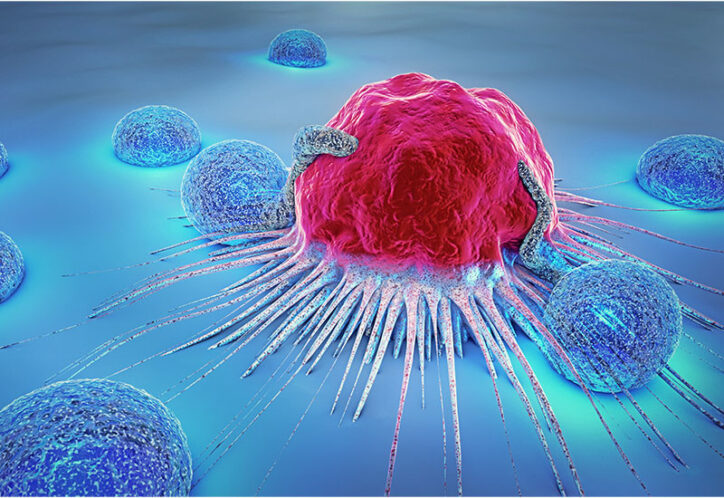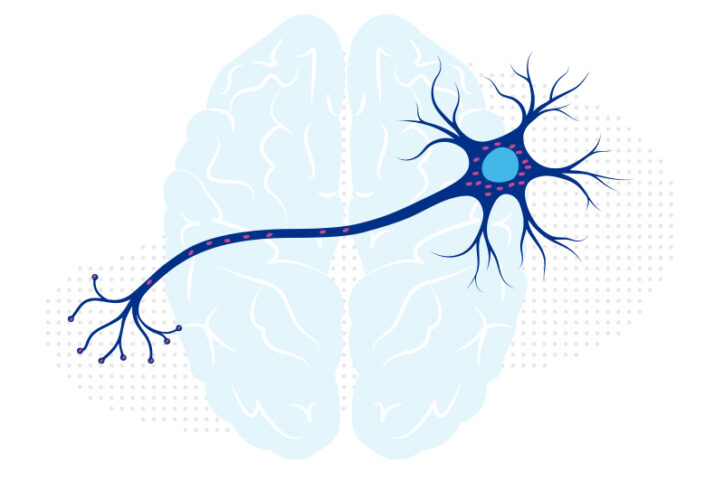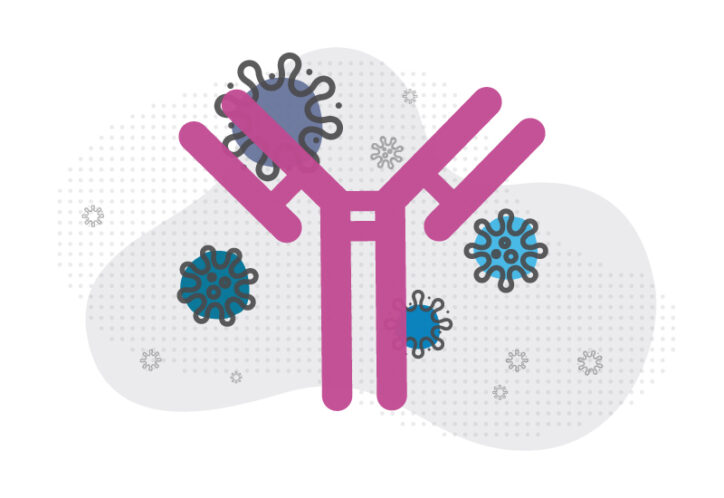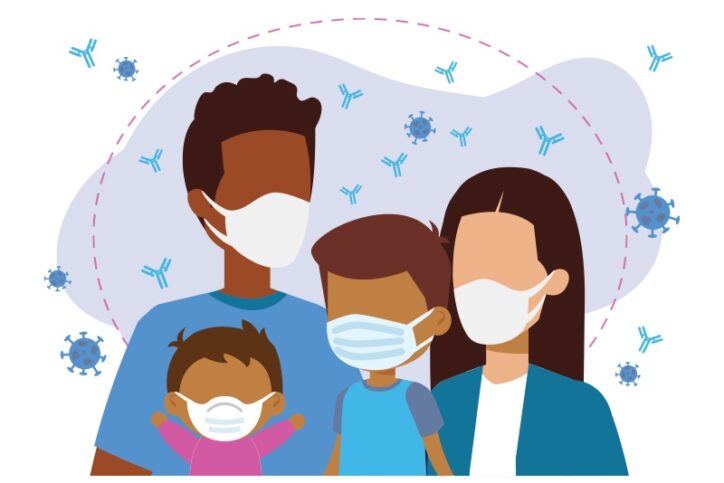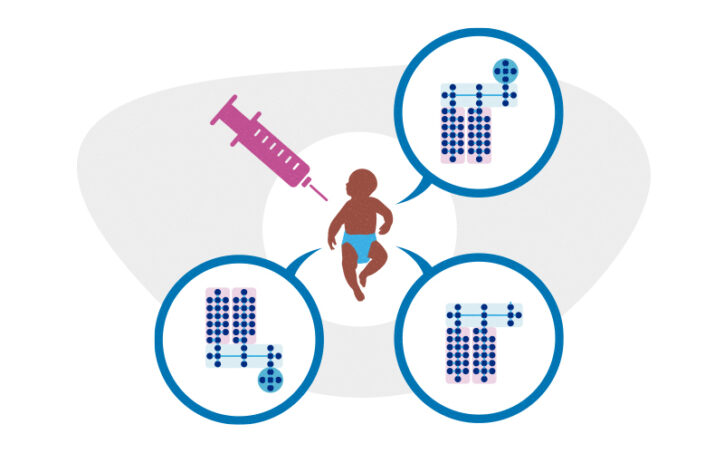Archive for immunology
Taming vaccine data: Joann Arce, PhD
Part of an ongoing series profiling researchers at Boston Children’s Hospital. Joann Arce, PhD, is a data tamer — corralling and wrangling vast quantities of data to extract insights on how our immune systems react to vaccines and infections. Her work is paving a path toward smarter, more potent vaccines. As lead of data management ... Read More about Taming vaccine data: Joann Arce, PhD
Tagged: big data, coronavirus, immunology, research rising stars, vaccines
An unexpected journey reveals a potent way to attack tumors
Research on the effects of prenatal exposure to the Zika virus has yielded an unexpected dividend: a potentially promising way to trigger natural killer (NK) cells to fight cancer. NK cells are first-responder immune cells. When enough of their activating receptors are triggered, they mobilize to kill infected, stressed, or cancerous cells at an early ... Read More about An unexpected journey reveals a potent way to attack tumors
A promising target for ALS and other neurodegenerative disorders: Curbing inflammation
When cells recognize a danger, such as an infection, they activate the innate immune system. Sentinel molecules sound an alarm, recruiting immune cells to take down the threat. In 2016, Judy Lieberman, MD, PhD and her colleagues at Boston Children’s Hospital showed that a protein called gasdermin D initiates a final, decisive step: pyroptosis, a ... Read More about A promising target for ALS and other neurodegenerative disorders: Curbing inflammation
Tagged: immunology, neuroinflammation, neurology, neuroscience
What every family should know about RSV
To help keep your family safe and informed about respiratory syncytial virus (RSV), we spoke to Dr. Kathleen Conroy, Clinical Chief for Children’s Hospital Primary Care Center (CHPCC). What is RSV and what are the symptoms? RSV is a virus that causes upper and lower respiratory tract infections, most commonly in children and infants; however, ... Read More about What every family should know about RSV
Tagged: fever, immunology, infectious diseases, pneumonia
Tim Springer: Scientist, entrepreneur, and mentor
As an undergraduate in 1966, immunologist, biochemist, and biophysicist Timothy A. Springer, PhD, looked askance at science. The Vietnam War was going on, and he saw science as a means of making Agent Orange and napalm. Questioning his own Ivy League education, he left Yale to spend a year as a VISTA volunteer on a ... Read More about Tim Springer: Scientist, entrepreneur, and mentor
Beyond COVID-19: Why kids need other vaccines, too
As you consider immunizing your child, it’s natural to have questions about the safety and effectiveness of vaccines. But the detection of polio in New York illustrates how diseases that were once thought to have been eradicated can reemerge when vaccination efforts lag. While COVID-19 vaccines have understandably drawn attention during recent years, it’s important to remember ... Read More about Beyond COVID-19: Why kids need other vaccines, too
Tagged: community health, coronavirus, flu, global health, immunology, infectious diseases
Powerful new antibody neutralizes all known coronavirus variants
As the COVID-19 pandemic wears on, newer variants of the SARS-CoV-2 coronavirus have been evolving ways to evade the antibodies we make in response to vaccines or prior infections. As a result, we’ve seen breakthrough cases, antibody treatments that once worked have also become less effective over time. Scientists have been searching for an antibody ... Read More about Powerful new antibody neutralizes all known coronavirus variants
Tagged: coronavirus, immunology, public health, vaccines
A new vaccine formulation could finally protect babies against RSV
Though often mild, respiratory syncytial virus (RSV) infection can cause babies to be hospitalized with bronchiolitis or pneumonia. Globally, it is the leading cause of death in children under 5. Several vaccines against RSV are being tested in adults. But there has been no progress on an RSV vaccine for children since 1966 — the ... Read More about A new vaccine formulation could finally protect babies against RSV
Tagged: immunology, infectious diseases, vaccines
Previous COVID-19 or MIS-C does not protect kids from Omicron
You would think that having had COVID-19 once, you’d have antibodies that would protect you against repeat infections. But studies of adults have shown that Omicron doesn’t go by that logic. A new study, led by Dr. Adrienne Randolph of Boston Children’s Hospital and Dr. Surender Khurana of the Food and Drug Administration, confirms that ... Read More about Previous COVID-19 or MIS-C does not protect kids from Omicron
Tagged: coronavirus, immunology, mis-c, vaccines
Old vaccine, new tricks? Unlocking the BCG vaccine’s potential
Could a century-old vaccine offer clues for designing the vaccines of tomorrow? Ofer Levy, MD, PhD, director of the Precision Vaccines Program at Boston Children’s Hospital, wants to find out. One of the world’s oldest and most widely used vaccines, the Bacille Calmette-Guérin (BCG) tuberculosis vaccine may at first seem like an unlikely source of ... Read More about Old vaccine, new tricks? Unlocking the BCG vaccine’s potential
Tagged: immunology, infectious diseases, proteomics, tuberculosis, vaccines



